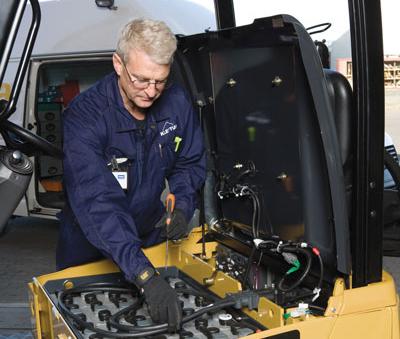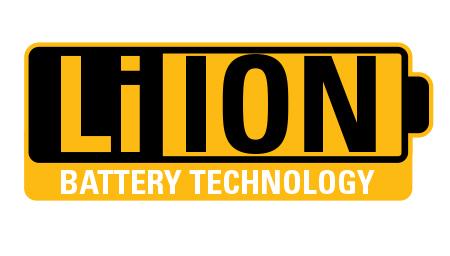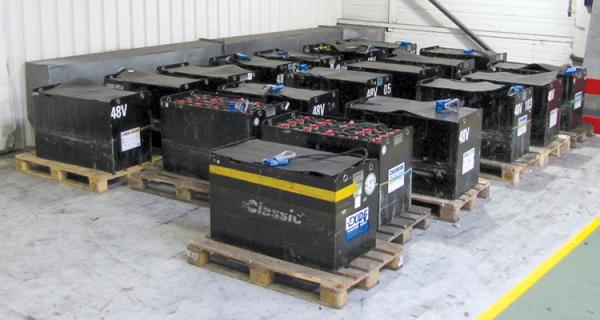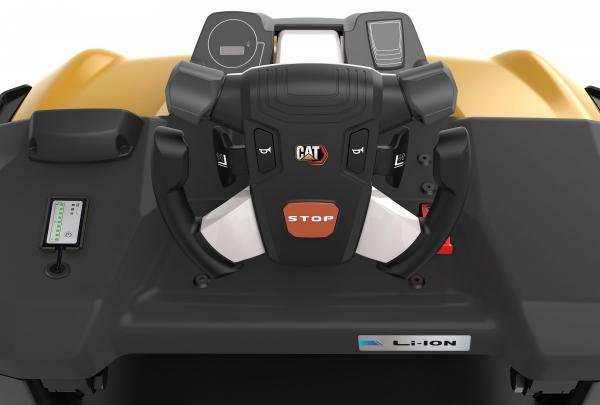Question: which battery is better for an electric forklift truck: lead-acid or lithium-ion?Answer: it depends…
Our experts at Cat® Lift Trucks explain why a lead-acid battery is usually the best choice for electric forklifts – at least for today.
What is the difference between a lead acid battery and a lithium-ion battery?
Whilst lead acid batteries have been around for years, lithium-ion batteries are much newer to market, and have only been widely adopted in the last 30 years. Aside from their differences in chemistry come differences in performance and cost, but both are effective storage solutions. Not all lead-acid batteries, however, are the same. Most electric forklifts use traditional flooded lead-acid, but there are alternative ‘sealed’ types, known as valve-regulated lead-acid (VRLA) batteries, that don’t need topping up with water. Amongst those are some advanced ones which take lead-acid battery capabilities to new levels. Lithium-ion batteries, (Li-ion), which are designed to be recharged hundreds of times and require a sophisticated battery management system (BMS), are also sealed.
Energy efficiency of batteries
Li-ion batteries pack tremendous energy into a small space and deliver sustained performance over long run-times. Flooded lead-acid batteries are bulky but they’re great at supplying high current for electric forklift trucks carrying out heavy duties. Apart from the more advanced models, VRLA batteries have less capacity. In terms of energy costs, these are higher for lead-acid, especially in flooded batteries, as they need regular overcharging to stay healthy.
Battery charging and cycle life
Lead-acid battery packs must be charged for several hours at a time. However, recharging before they drop to about 20% of their capacity shortens their life, except for the most advanced VRLA units. These, like Lithium-ion batteries, can be opportunity-charged at any time – during lunch breaks or a forklift truck’s downtime for example – without any ill effects. Flooded lead-acid batteries may live a bit longer than VRLA, but not as long as Li-ion. On the downside, although they promote many sustainable actions, Li-ion batteries are harder to recycle and therefore not as environmentally friendly.
Maintenance needs
Both Lithium-ion batteries and sealed lead-acid batteries are virtually maintenance-free. For flooded lead-acid batteries, you can extend watering intervals with the right battery and charger – or think about an automatic top-up system. Flooded batteries need a special ventilated charging room, as they produce explosive gases. When stored, their cells lose charge and must be recharged every few months. The latest VRLA advances can increase this to two years, while Li-ion holds charge even longer.
So, what type of battery should your electric forklift truck use? The choice is ultimately up to you and will depend upon the set up of your materials handling operation, the tasks your forklifts need to perform and what’s affordable. Lithium-ion gives very long life and high energy efficiency, with little or no need for battery changes and downtime. However, these benefits may be over-shadowed by its’ much higher cost compared to lead acid batteries and extra costs involved relating to its opportunity-charging stations. Right now, there are relatively few forklift applications where Lithium-ion battery’s savings outweigh its expense – although current prices are starting to fall…
These are just some of the factors to consider when deciding which type of battery is best for your electric forklifts. For a more detailed comparison of battery types, go to https://eurekapub.eu/technology/2019/07/15/power-pack-probe.
To find out more information on all our forklifts, click here, or to find out more about our warehouse equipment and accessories, click here. Alternatively, see our trucks in action at: https://www.catlifttruck.com/videos.



